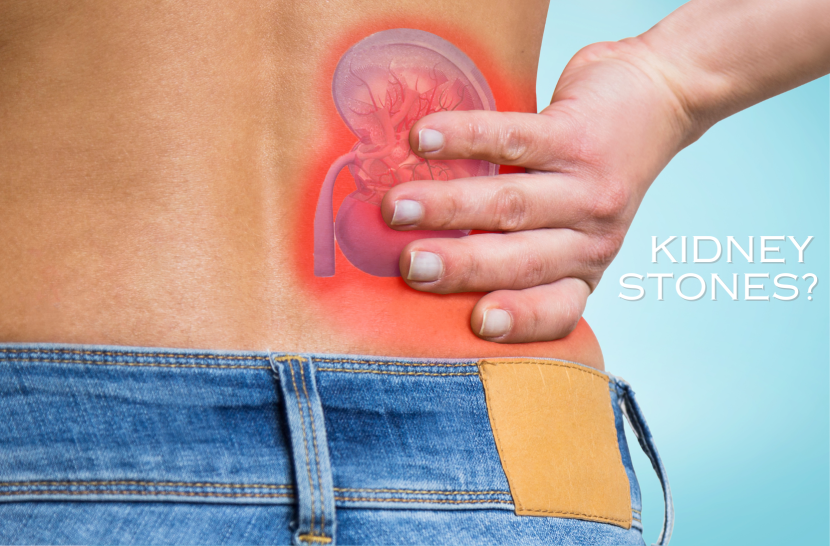Kidney stones are a common but painful condition that affects millions of people globally. These small, hard deposits form inside the kidneys and can trigger intense discomfort when they move through the urinary tract. But what exactly causes them? And what can you do to treat or prevent them?
In this blog, we’ll break down the causes, symptoms, treatments, and even natural home remedies for kidney stones.
What Are Kidney Stones?

Kidney stones (also known as renal calculi, nephrolithiasis, or urolithiasis) are hard deposits made of minerals and salts that form inside your kidneys when urine becomes concentrated.
These stones can vary in size—from tiny crystals to large formations—and may travel through your urinary tract, sometimes causing severe pain.
What Causes Kidney Stones?
Kidney stones can form due to a variety of factors, with dehydration being one of the most common causes. When you don’t drink enough water, urine becomes concentrated, making it easier for minerals to crystallize and stick together. A high-sodium or high-protein diet can also increase the risk, as these can raise calcium or uric acid levels in the urine. Excess oxalate intake, often found in foods like spinach, nuts, and tea, may lead to calcium oxalate stones—the most common type. Certain medical conditions such as gout, hyperparathyroidism, or irritable bowel syndrome (IBS) can alter the body’s chemical balance, promoting stone formation. Genetics also play a role; if kidney stones run in your family, your chances of developing them are higher. Additionally, some medications, including diuretics and calcium-based antacids, may contribute to stone development.
Symptoms of Kidney Stones
You might not know you have a kidney stone until it starts moving. Symptoms include:
- Fever and chills (if infection is present)
- Sharp pain in your back, side, or lower abdomen
- Pain during urination
- Blood in urine (pink, red, or brown)
- Cloudy or foul-smelling urine
- Nausea or vomiting
Treatment Options
1. Hydration and Pain Relief
For small kidney stones, treatment often begins with simple home care. Staying well-hydrated by drinking 2 to 3 liters of water per day can help flush out the stone naturally. Alongside hydration, over-the-counter pain relievers like ibuprofen or acetaminophen can ease discomfort as the stone passes through your urinary tract.
2. Medical Therapy
If a stone is more stubborn or painful, medications may be recommended by a doctor. Alpha-blockers, such as tamsulosin, help relax the ureter and make it easier for the stone to pass. For those prone to recurrent stones, medications like allopurinol or potassium citrate can be prescribed to prevent future formations.
3. Surgical Procedures for Larger Stones
When stones are too large to pass naturally, surgical options come into play. Common procedures include Extracorporeal Shock Wave Lithotripsy (ESWL), which breaks stones into smaller fragments using sound waves; ureteroscopy, where a thin scope is inserted to remove or break the stone; and percutaneous nephrolithotomy, a minimally invasive surgery for large or complex stones.
Natural Home Remedies for Kidney Stones
While medical treatment is often necessary, these natural remedies may help manage or prevent kidney stones:
- Lemon Juice & Olive Oil Mix: Lemon contains citrate, which helps break down calcium stones. Mix 1/4 cup of lemon juice with olive oil and drink daily.
- Apple Cider Vinegar (ACV): The acetic acid in ACV may help dissolve kidney stones. Add 1–2 tablespoons to a glass of water.
- Basil Tea: Basil contains acetic acid and antioxidants. Drinking basil tea may support kidney function.
- Hydration is Key: Drink water infused with coconut water, pomegranate juice, or barley water for added minerals.
- Dietary Changes: Reduce sodium and processed sugar. Focus on whole grains, fruits, and green leafy vegetables.
⚠️ Always consult your healthcare provider before using home remedies, especially if you’re on medications.
Final Thoughts
Kidney stones can cause sharp, unbearable pain—but the good news is that they’re treatable and often preventable. By staying hydrated, following a kidney-friendly diet, and being aware of symptoms, you can significantly reduce your risk.
For personalized treatment, always consult a urologist or nephrologist.




